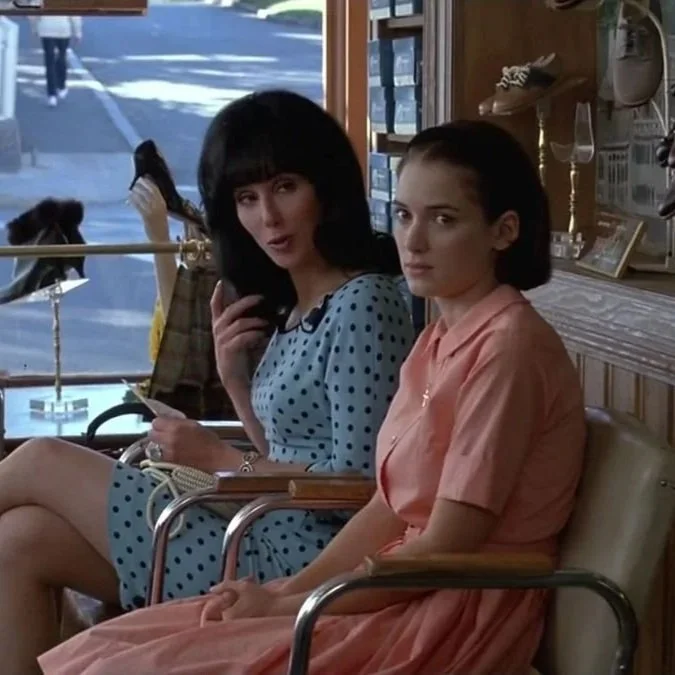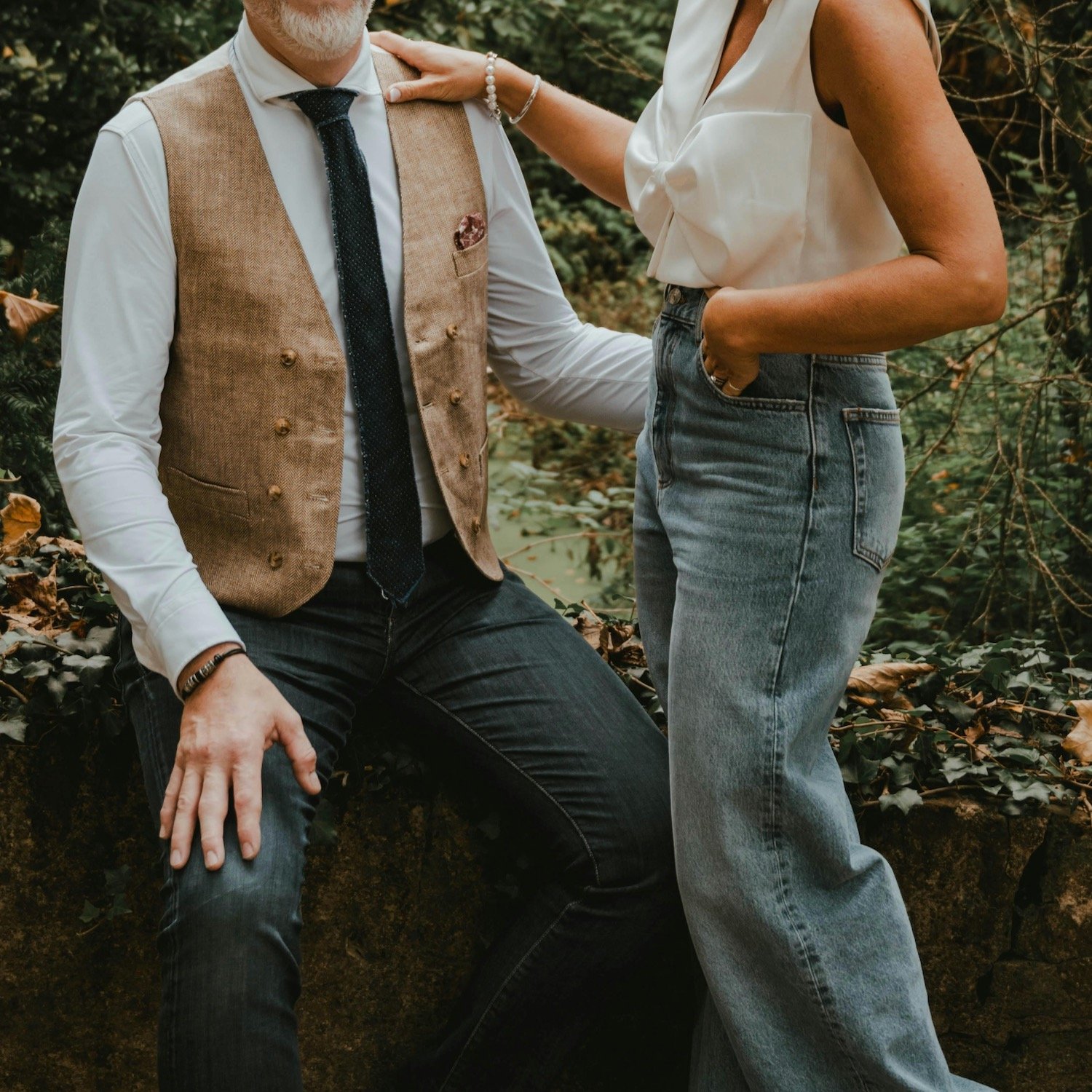How I'm Raising My Highly Sensitive Child As A Highly Sensitive Person Myself
by Anonymous
When my son was younger, he was invited to a birthday party with one of those huge bouncy houses. There was loud music and kids running wild and piling on top of each other and it was utter chaos.
He lost it.
He cried and wouldn’t participate. He sat in a corner and tried to block it all out. It was too much. This assault on his senses. As highly sensitive people, my son and I are super sensitive to internal (emotional or physical) or external (lights, sound, crowds) stimuli. It doesn’t just unnerve us or make us uncomfortable. These instances overwhelm us and can greatly impact our mood which, frankly, is the best case scenario.
On the other end of the spectrum, it can cause us to be unable to function in that environment. Our bodies cannot handle all that coming at us and so our bodies just…stop. That’s the worst case scenario.
That day was a worst case scenario.
He was overstimulated, overwhelmed and increasingly aware of my frustration and annoyance, which was due to his behavior and my embarrassment. But mostly due to the absolute clusterfuck of this birthday experience and how the environment was decreasing my ability to think clearly and parent effectively.
It was an ugly cycle, that day. His overwhelm and fear compounded my inability to synthesize our physical environment. My frustration and annoyance compounded his feelings. We survived the party but it took time. We got home strung out and exhausted and needing a nap. Both of us.
Growing up, I was the sensitive one. The “over-sensitive” one, actually. It's not that my feelings were ignored. But they weren't validated or accepted either. They were...a burden. Or a topic for ridicule.
It took counseling and years of introspection to realize that being a highly sensitive person (HSP), an empath and other alike attributes are not weaknesses. They are strengths and they, frankly, are special. From the moment my kids could understand, we talked about their feelings being a superpower. It makes them compassionate, empathetic, helpful.
My desire to acknowledge, label, and nurture these feelings came right out of my childhood wish list. It is what I needed as a child. It was what I gave myself as an adult. Giving my children this language and validation puts them on a more positive mental health journey years sooner than mine began.
Being an HSP is more than being sensitive. It is more than knowing someone is sad or frustrated. It is feeling their feelings with them. Many times an HSP has to ask themselves – is this feeling mine? Lots of times, it isn’t. It is hard to discern and takes practice.
So even though I have given my child this language, and on multiple occasions, we could literally point to the person to whom the feelings we were feeling belonged, it is a challenging skill. It is a muscle and like any muscle you first have to figure out how to make it work and then you have to strengthen it. Hard enough to do on your own, even more challenging when you and your kid are ping ponging your feelings back and forth like Forrest Gump.
I am better at helping him when he is sad.
For some reason, that is easier for me. I can console him and know that those feelings aren’t mine. He can cry and sob and hyperventilate and I am able to hold him until he is done. Give him time to figure out what he is feeling, calm his body down and then calm himself down. Sometimes we talk about it. Other times we don’t. I am good with the sadness. I can hug him and give him a safe space for as long as he needs. I excel here. Frankly, sadness is my HSP speciality.
The anger and frustration? Not so much. Those rile me right up.
My chest gets hot and I can feel my heartbeat in my ears. When he is angry, that is much more work for me and something I don’t handle well. I can try and count to 3…00. I can do my big belly breaths. But I just get angry, too. I often tap out. Handing him over to my husband or walking away to get my shit together before I can help him. I don’t know whether it’s because I am uncomfortable with my own feelings of anger, or if it is remnants from my childhood. Among the many things I can handle, thinking that someone is angry at me is THE most difficult emotion for me to manage.
“i have heard him say awful things to himself. I know how those hurt because I have said them to myself.”
So how do I handle my kid being furious when I can’t really handle that at all? We discovered it just a few weeks ago.
I sent him up to his room. To separate us. He came down a while later and was able to talk. As was I. I asked if giving him space helped? He said it did and asked me to let his dad know, too. So now we do. When he’s angry, he gets space and time. And the conversation happens on his timing and his terms. It helps us both out.
Then there are times when he turns his anger on himself. These are heartbreaking moments. Because in these instances, I am looking in a mirror. I have heard him say awful things to himself. About his brain, his ability to be a friend. I know how those hurt. I have said them to myself.
I have watched him berate himself physically for a mistake or behavior that he is not proud of. This is not to stave off the punishment he expects from me. No. This is because his overwhelm and intense feelings are blurring the line between truth (mistake) and lie (unworthy). I know this because I have done it myself. Same words, same motion, same outcome. In these instances, I shout to get his attention and bring it to me. I grab his hand. I tell him the truth. I hold him while he cries. He stays in my arms while I cry. These instances are very, very few now. But I know they lurk. Because they still do for me.
But those are just some of the hard parts. It makes me think that I wrote this article backward.
Because there are some really amazing parts to being an HSP. And raising one.
Our compassion and empathy are hard wired. It makes my son kind and thoughtful and aware of others. It makes us wonderful siblings and friends. It even helps strangers. Two weeks ago we had to invite an emergency plumber into the house. He was in our home (mask on!) and started talking about our dog which led to him talking about his son which led to him crying. He apologized. My son said – “It’s ok. We don’t apologize for crying here.” And lots of people cry in our house.
It took me a long time to learn that strangers don’t just open up to everyone. But they do disproportionately open themselves up to us. The man felt better after sharing stories of his son, who had passed. I could not have been more proud of how my son handled it.
We are forced to learn our triggers and soothing mechanisms early. If I am going to be at a party later, I know I need to rest early in the day or have time set to rest after. I get in the tub or go for a walk or put my feet up on the wall if I am overstimulated or panicky.
With my son, we created a mantra. These mantras are short and to the point. They remind him that this moment/feeling, though big, is not permanent and that he is safe. He has it printed and in a few important places. Seeing this is a good reminder of his tools, and is a consistent guide. But he is an auditory learner. So, for him? Hearing the sentiments repeated is where the power is. These are things we had to learn early. Not because they make life easier. But because they make life livable.
“we are forced to learn our triggers and soothing mechanisms early. Not because they make life easier. But because they make it livable. ”
We also learned how to advocate young. JK. He did. I did not. As much as it can frustrate me that he’ll stomp off to have some space when he is mad, I know he needs it. As much as I was embarrassed at times when he was younger or felt that I needed to explain his shyness, it taught me to momma bear very quickly. It has given both of us the strength to set boundaries and say – “no, that’s not for me.”
Recently, he let a friendship cool down because it was becoming very emotionally difficult for him. He said – “momma, I’m just not feeling that friendship right now.” He was protecting himself and the way he moves through the world. It was amazing.
I see how he manages things now. How much more adept he is than I was at his age. How he is unapologetic about his feelings and their intensity and what he needs as a result.
I’m learning from him. But I also know he’s getting that from me.
My kids see me taking big breaths if needed. They know I have a feelings doctor and that I need space when I get into the tub. They see how I manage my feelings, other people's feelings and my anxiety on the regular. They watch me and they pay attention.
Here’s the thing. Parenting a highly sensitive human is hard. I see that now. So a little grace to my parents. Because it’s a lot. And I learned a great deal about how to do it differently. Growing up, only one person's feelings were allowed in our home. And, spoiler alert, they weren’t mine.
Now I live in a home where multiple people are highly sensitive. So we learn that all feelings matter, all feelings are true, and that they are our cape, not our kryptonite.
This article is for informational purposes only. It is not intended to be used in place of professional advice, medical treatment, or professional care in any way. This article is not intended to be and should not be a substitute for professional care, advice or treatment. Please consult with your physician or healthcare provider before changing any health regimen. This article is not intended to diagnose, treat, or prevent disease of any kind. Read our Terms & Conditions and Privacy Policy.






